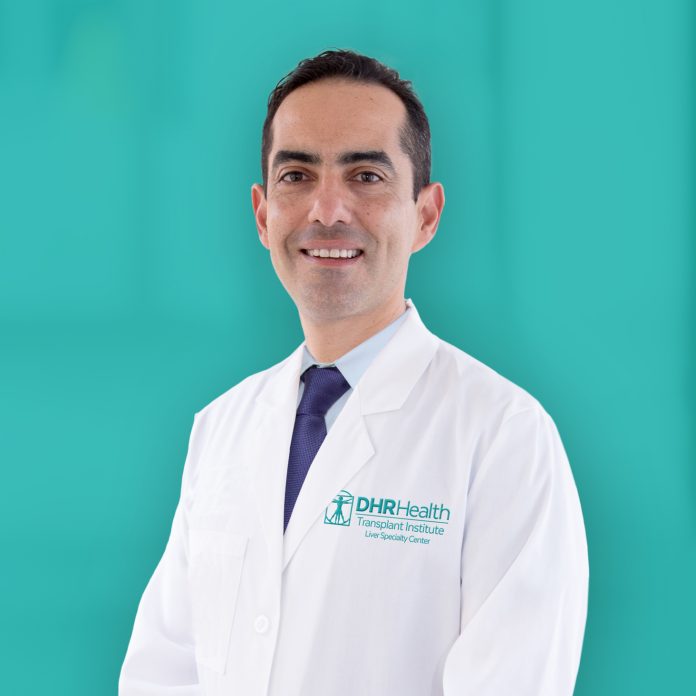
By: Dr. Fernando E. Membreño
Physician at the DHR Health Transplant Institute specializing in
Liver Transplantation and Hepatobiliary Services
REGIONAL DIFFERENCE IN ORGAN DONATION RATES IN THE RGV
The Rio Grande Valley is a culturally rich and unique area of South Texas with a strong Hispanic heritage. Being a south border region, it has a high predominance of Hispanic immigrants with a high percentage of first-generation Americans, in contrast to other large south Texas cities, like San Antonio that have a higher predominance of 2nd and 3rd generation Hispanic population. This difference becomes an important fact that will help us understand the regional difference in organ donation rates in the RGV.
The organ donations rates in the RGV are substantially lower when compared to their neighboring cities such as Corpus Christi and San Antonio. This becomes partially evident when we compare the organ donation registrations shown in Table 1. This seems paradoxical since the Hispanic culture is well known for deep family roots driven by a strong matriarchal society.
SO, THE QUESTION BECOMES: “WHY ARE ORGAN DONATION RATES SO LOW IN THE RGV?”
The answer to that question is more complex than simple, as you may imagine and certainly beyond the scope of this short essay. Nonetheless, as an Immigrant Hispanic Liver Physician who has practiced transplant medicine and lived in both San Antonio and the RGV for the last 20 years, I will offer some thoughts.
Hispanic immigrants in the RGV endure a hostile environment typical of immigrants settling in a new land, with a new culture, a new language, and a different scale of social values, which by the way has made the United States the greatest nation in the world. But this environment generates in Hispanic families a cultural shock that leads families to become more isolated and work becomes the center of family life and children become culturally disoriented with loss of personality, that becomes split between the new American and the old Hispanic culture of their parents. These combination of factors leads to an excessive self-centered family nucleus where there is no space for assimilation of the American culture. As a result, we see Hispanic families with close ties towards family members and their microcosm, but not towards the society they live in. I think this is a continuous process and as Hispanic generations assimilate the American culture, they become more aware of their country and the importance of giving. I went through this process and finally understood the meaning of altruism.
Being an organ donor is one of the major acts of love and selflessness. The RGV is a young and thriving Hispanic population that is in the process of building its’ own story and its’ own personality in America. This will require a concerted effort to imprint in the new American generations a sentiment of patriotism where Valley people take care of their fellow Americans and organ donation is a good start.
Corpus Christi:
Aransas 75%
Nueces 70%
San Patricio 81%
San Antonio:
Atascosa 62%
Bandera 74%
Bexar 72%
Comal 99%
Guadalupe 74%
Kendall 99%
Medina 63%
Wilson 70%
Rio Grande Valley:
Starr 39%
Hidalgo 50%
Willacy 38%
Cameron 58%
Table 1. Shows totals of registered organ donor percentages % by county according to Donate Life Texas as of April 2024.
ABOUT THE DHR HEALTH TRANSPLANT INSTITUTE:
The DHR Health Transplant Institute, is the only CMS (Centers for Medicare and Medicaid Services) and UNOS (United Network for Organ Sharing) certified kidney transplant center in the Rio Grande Valley, offering comprehensive and innovative care that is close to home. Patients benefit from a multidisciplinary team of specialists who provide holistic treatment for kidney, liver, and pancreatic disorders, eliminating the need for travel and ensuring all care, from assessment to follow-up, is accessible within the RGV.
The DHR Health Transplant Institute is located at 1100 Dove Avenue, second floor of the DHR Health Medical Office Building located in McAllen. To make an appointment call (956) 362-5433.




